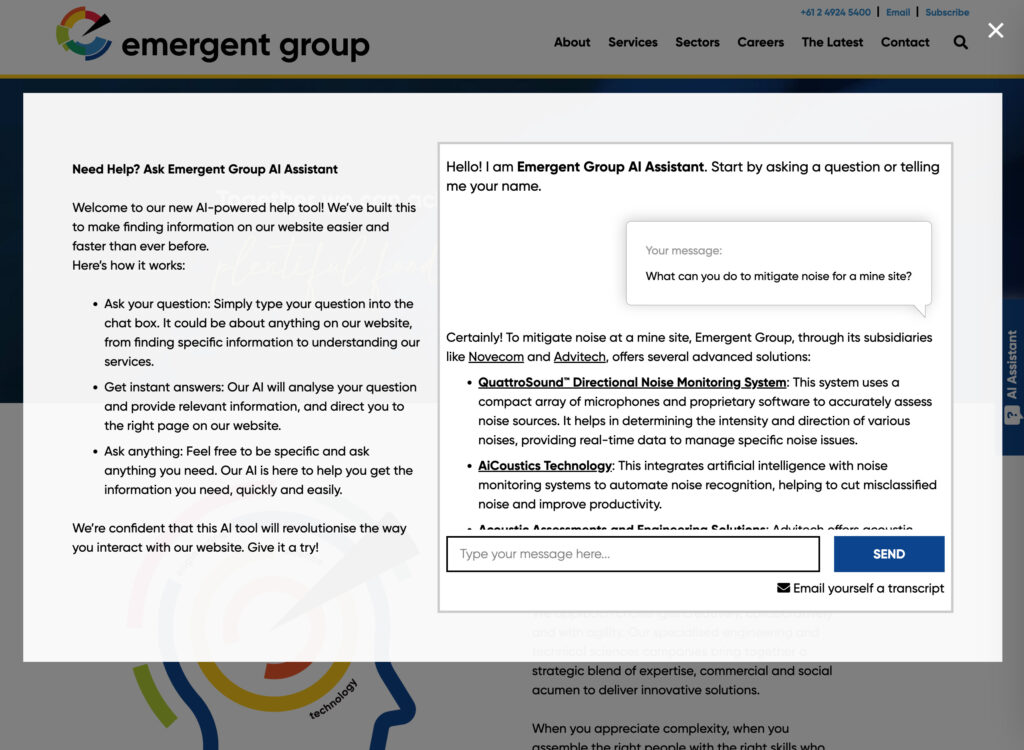This recent blog post is about website server status codes. This post is about Generative AI and SEO. While it is important for our clients to understand what the various status codes mean in terms of their website and web page availability and SEO, the blog post was written as an experiment.
While we have been tinkering and assessing Generative AI for some time, we have been reluctant to use it for website content, especially for our SEO clients. Why? Because by its very nature, content generated by AI is not original. We, therefore, felt it was risky to use and may be ignored or worse by Google. So, I thought I would put it to the test.
The article was mostly generated using SEO/Content writing software that incorporates AI and anti-AI detection settings. As per my suggestion here, I then made relatively minor corrections to American spelling and removed or substituted words that I wouldn’t naturally use. I then ran the content through an AI detection software, which I subscribe to, which rated it at only 25% AI. I sourced some images and published the post in the morning. By that afternoon, it had been indexed by Google.
To see whether it had been, I searched for “website status codes Newcastle”. Sure, that query has a search volume of practically zero, however, it ranked number 1 at the time of search above a coincidentally contemporary post by our friend Dan Borg. Searching for “website status codes” also returned our post, but at the time of writing, it was well down the rankings among dedicated SEO and web server organisations and blogs.
What does this mean? Well, like the Chinese Politician Zhou Enlai, who, when asked what he thought of the impact of the French Revolution, replied, “It is too early to say.” It is too early to say. The key variable in the experiment is the percentage of AI detected.
What have we learned?
The first thing you will notice about the blog post is the structure, the repetitiveness of the content, that it is matter of fact and does not “sound” like HyperWeb. You can see thought that the structure is aimed towards optimising for helpful content. Sections under headings for Key Takeaways, Summary, and FAQs and the use of clear heading hierarchy also helps readability.
So the experiment emphasises absolutely the benefit of creating content helpful to the user. The jury is not yet out on the question of how AI generated content is treated in Search Engine Return Pages (SERPs). The jury is still hearing the case of what would happen if the content was detected as 100% AI. We will let you know in a future article when we come to a verdict.




